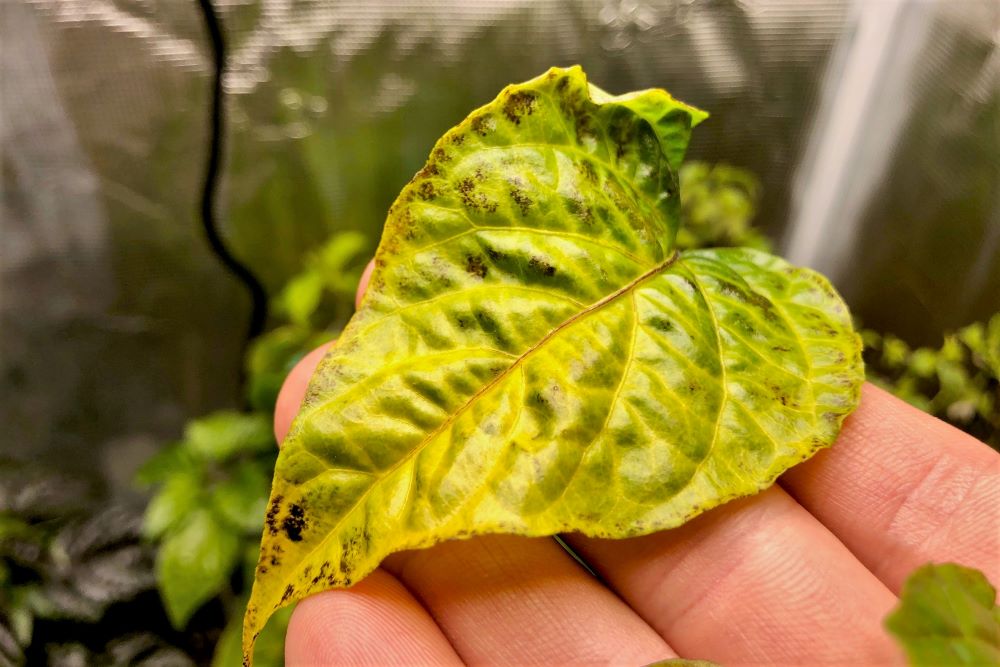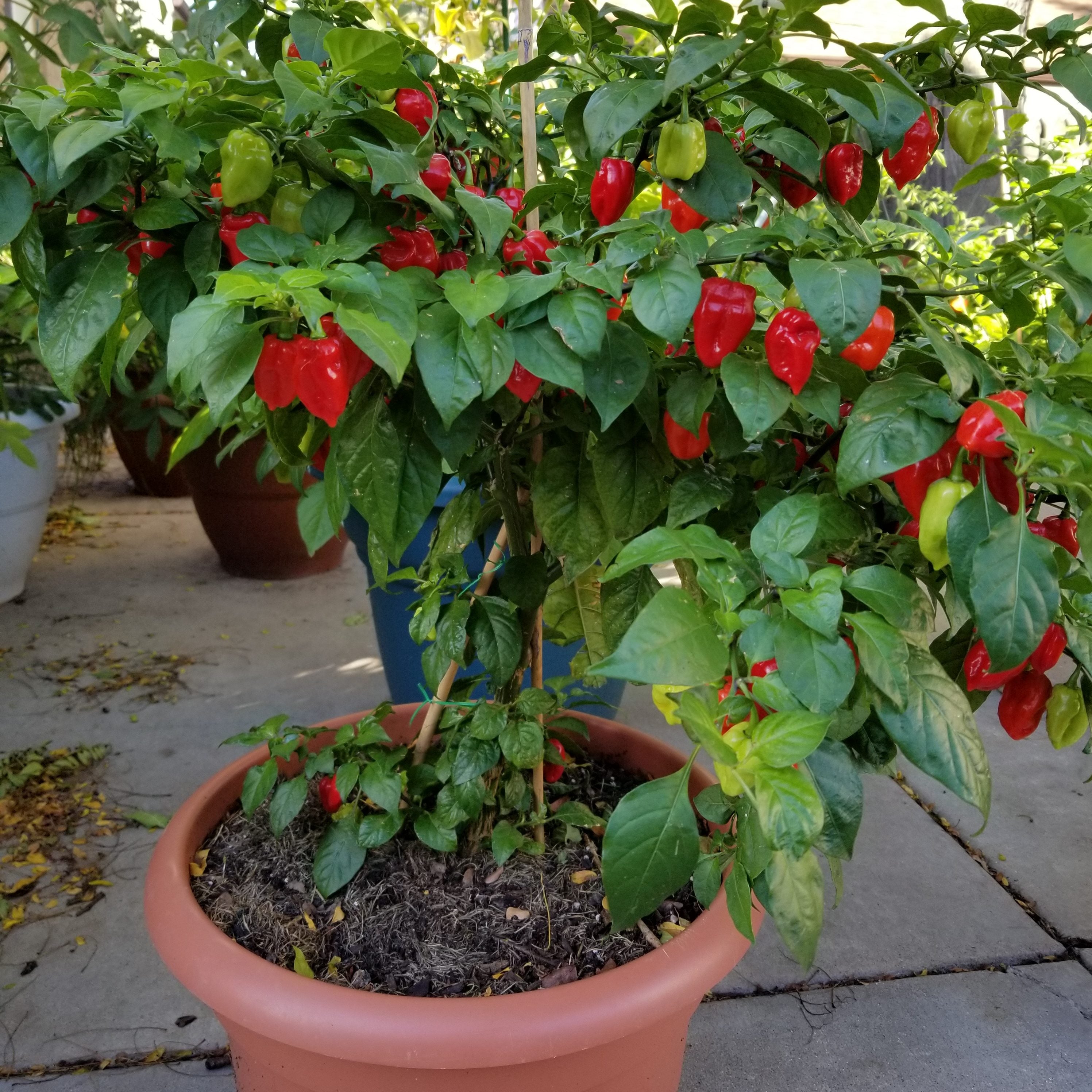Find Out the Best Fertilizers for Peppers: Top Picks for Optimal Growth
Find Out the Best Fertilizers for Peppers: Top Picks for Optimal Growth
Blog Article
Organic Vs. Synthetic Fertilizers: Which Is Best for Nurturing Healthy Pepper Plants?
In the world of nurturing healthy and balanced pepper plants, the option between natural and artificial fertilizers stands as a critical decision with significant ramifications. While both choices purpose to give vital nutrients to sustain plant growth, the nuances of their influence on the dirt, plant wellness, and the setting stimulate a dispute that mirrors throughout the gardening neighborhood. Understanding the unique advantages and prospective mistakes of each plant food kind is vital for pepper cultivators seeking to optimize their yields while keeping a lasting and eco-conscious technique.
Advantages of Organic Plant Foods
Organic fertilizers use a lasting and environmentally-friendly method to nourishing pepper plants, offering important nutrients without using artificial chemicals. These all-natural plant foods are originated from natural sources such as garden compost, manure, bone dish, and seaweed, promoting soil health and wellness and biodiversity. Unlike synthetic fertilizers, organic options launch nutrients slowly, ensuring a balanced and consistent supply for pepper plants to flourish.
One substantial benefit of organic fertilizers is their ability to enhance soil structure and water retention. By boosting soil health and wellness, organic plant foods promote advantageous microbial task, which aids in nutrient uptake by pepper plants. Furthermore, natural fertilizers minimize the risk of chemical run-off, shielding water resources from contamination and safeguarding the atmosphere.
Furthermore, natural plant foods contribute to lasting soil fertility by promoting the growth of beneficial dirt microorganisms. These organisms aid break down organic issue, releasing nutrients in a type that is easily available to pepper plants. best fertilizers for peppers. By fostering a healthy and balanced soil ecological community, organic plant foods sustain sustainable pepper farming techniques that profit both plants and the environment
Disadvantages of Synthetic Fertilizers
Artificial plant foods, unlike their organic counterparts, pose different downsides when used to nourish pepper plants, affecting both plant health and wellness and environmental sustainability. One significant downside of synthetic plant foods is their propensity to seep nutrients from the dirt promptly. This quick leaching can bring about nutrient discrepancies in the dirt, creating plants to deal with poisonings or shortages. Additionally, synthetic fertilizers can hurt advantageous dirt microorganisms, such as earthworms and valuable bacteria, interrupting the soil community's equilibrium.
Furthermore, the overuse of artificial plant foods can add to water air pollution. Excess plant foods not absorbed by plants can get rid of right into water bodies, resulting in eutrophication, where algae blooms deplete oxygen levels in the water, hurting aquatic life. Synthetic fertilizers are normally obtained from non-renewable sources, such as fossil gas, adding to carbon exhausts and ecological destruction throughout their production.
Nutrient Absorption Comparison
Efficient nutrient absorption plays a vital function in the general wellness and development of pepper plants. When contrasting organic and synthetic plant foods in regards to nutrient absorption, natural plant foods have the benefit of providing a more balanced and slow-release resource of nutrients (best fertilizers for peppers). Organic plant foods contain a variety of macro and trace elements that are not just helpful for the plants but additionally promote healthy soil microbial task, which assists in nutrient uptake. On the various other hand, synthetic fertilizers usually provide a quick release of nutrients, which can bring about leaching and overflow, causing lower nutrient absorption prices by the plants.
Furthermore, organic plant foods enhance soil framework and water retention capacity, enabling pepper plants to accessibility nutrients a lot more efficiently. This better dirt quality facilitates origin growth, enabling better nutrient absorption. Synthetic plant foods, although initially boosting plant development because of their high nutrient concentrations, might hinder long-lasting nutrient absorption by degrading soil wellness with time.
Ecological Effect Considerations

On the other hand, artificial plant foods, although usually even more instantly offered and concentrated to plants, can have destructive results on the setting if not applied effectively (best fertilizers for peppers). Their production requires high power inputs, causing greenhouse gas discharges and adding to environment change. The drainage of excess synthetic plant foods can infect water sources, leading to eutrophication and hurting marine communities.
Ideal Plant Food Practices for Peppers
When fertilizing pepper plants, optimizing nutrient uptake and lessening ecological influence are key factors to consider. To attain this, it is vital to comply with finest plant food techniques customized to the details needs of pepper plants. One essential method is to carry out a soil test before applying any check my source type of plant foods. This test can figure out the pH degree of the dirt and determine any type of nutrient shortages, assisting you in choosing one of the most appropriate fertilizer formula.
Another essential method is to feed pepper plants at the correct time. Generally, peppers gain from receiving plant food at growing and afterwards once more when they start to blossom. Over-fertilizing can lead to nutrition imbalances and damage the plants, so it is crucial to comply with advised application rates.
Furthermore, picking a well balanced plant food with an NPK proportion that matches pepper plants' requirements is basic. Organic fertilizers, such as compost or manure, can be excellent selections as they release nutrients slowly and improve dirt framework in time. Synthetic plant foods can offer a fast nutrient increase when required. Eventually, incorporating natural and synthetic fertilizers judiciously can aid nurture healthy and balanced pepper plants while reducing ecological effect.
Conclusion

Organic fertilizers supply an environmentally-friendly and lasting method to beneficial pepper click site plants, offering crucial nutrients without the use of artificial chemicals. Unlike artificial fertilizers, natural options release nutrients gradually, guaranteeing a steady and well balanced supply for pepper plants to grow.
Synthetic plant foods, in contrast to their natural counterparts, posture various downsides when used to nourish pepper plants, influencing both plant health and ecological sustainability. When comparing organic and artificial plant foods in terms of nutrient absorption, natural fertilizers have the advantage of supplying an extra balanced and slow-release source of nutrients.Moreover, natural plant foods boost dirt structure and water retention capability, enabling pepper plants to accessibility nutrients more efficiently.
Report this page